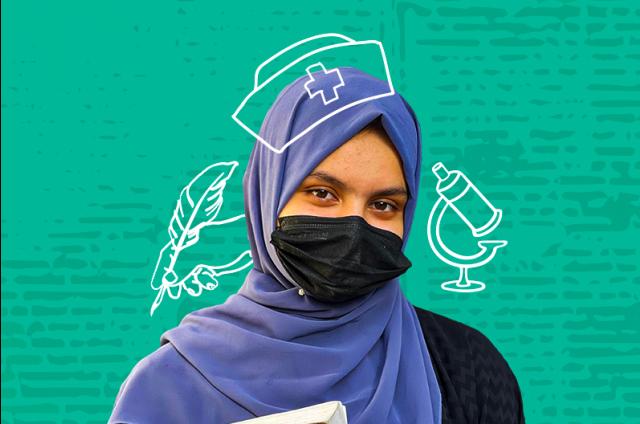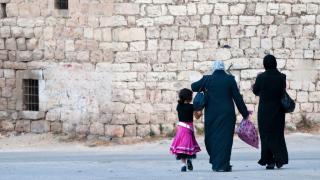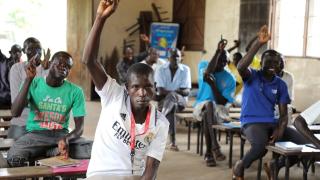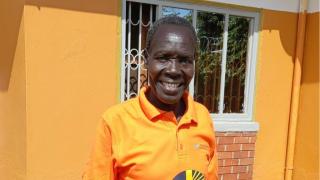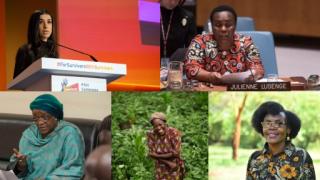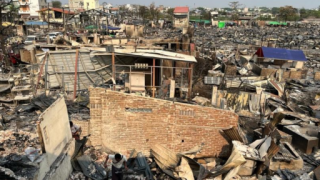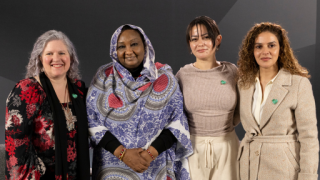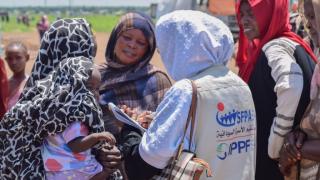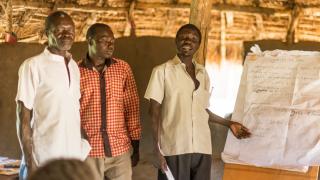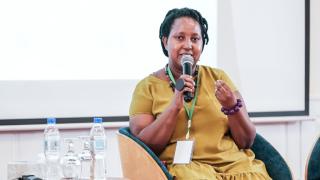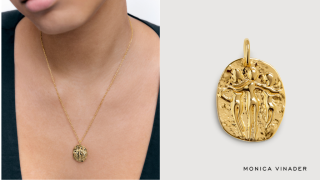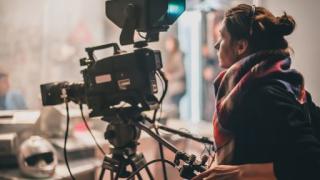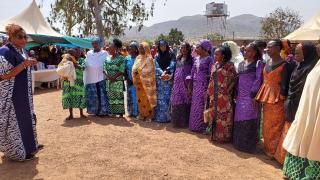Empowering Reads: A Journey Through Inspirational Books for Women and Girls
Reclaiming Their Stories: Celebrating the power of young women
Books to Inspire, Empower and Educate Adolecent Girls Worldwide
We are excited to announce the launch of Women for Women International's expanded Adolescent Girls Programme, an extension of our Stronger Women, Stronger Nations curriculum. This programme aims to support teenage girls aged 16-17 in conflict-affected countries, where they face extreme poverty, gender-based violence and limited educational opportunities. Globally, 119 million girls are not in school (source: UNICEF), highlighting the urgent need for intervention.
Our comprehensive curriculum covers gender equality, health, financial literacy, vocational skills, and future planning — designed to support young women and prepare them for economic independence. With a rights-based, survivor-centred approach, we ensure the safety and support of every participant.
Through our pilot programme in Rwanda and planned expansions to Iraq, Nigeria, and Afghanistan by the end of 2025, we aim to reach 3,000 girls.
In line with this mission, we've curated a selection of powerful books that resonate deeply with the themes of our Adolescent Girls Programme. These books connect to the rights of adolescents, addressing education, empowerment, resilience and activism. Happy reading!
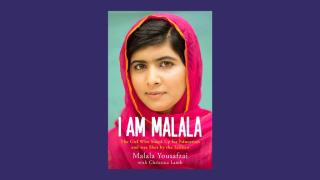
I Am Malala
Malala Yousafzai
Malala Yousafzai, the youngest-ever Nobel Prize laureate, is a global advocate for girls’ education. Her courageous stand against the Taliban’s oppressive policies has inspired millions, and her memoir tells the story of her incredible journey.
Why read it? I Am Malala: The Girl Who Stood Up for Education and Was Shot by the Taliban mirrors the challenges many adolescent girls face in our programme — the right to education which is often denied due to conflict and discrimination. Malala's story of resilience and activism serves as a reminder that education is key to empowerment.
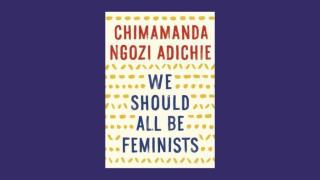
We Should All Be Feminists
Chimamanda Ngozi Adichie
Chimamanda Ngozi Adichie is a Nigerian author and feminist who has written widely about identity, gender and social issues. Her TEDx talk, which inspired this book, is a groundbreaking manifesto for gender equality.
Why read it? Adichie’s work aligns with our curriculum’s emphasis on gender equality and women’s rights. For teenage girls navigating a world that often marginalises them, her call for empowerment and inclusion is vital. With eloquence and passion, Adichie breaks down what feminism means today, making it accessible and relatable for people from all walks of life.
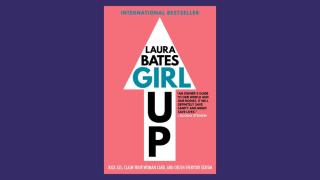
Girl Up
Laura Bates
Laura Bates is the founder of the Everyday Sexism Project, which has been a powerful platform for highlighting and addressing gender inequality.
Why read it? Packed with advice and inspiration, this book empowers young women to tackle sexism, build their confidence and assert their place in the world. Bates connects to the themes of our programme by encouraging young girls to challenge societal norms, build self-esteem and stand up against gender-based violence.
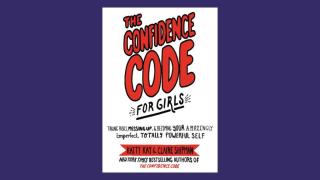
The Confidence Code for Girls
Katty Kay and Claire Shipman
Katty Kay is a journalist with BBC World News, and Claire Shipman is a journalist and advocate for women’s leadership. Together, they’ve written a book that aims to help girls break free from societal pressures and embrace their authentic selves.
Why read it? This book emphasises confidence and self-worth, key areas of focus in our Adolescent Girls Programme. By encouraging girls to take risks and embrace their unique strengths, it fosters the resilience and leadership skills our curriculum aims to build.
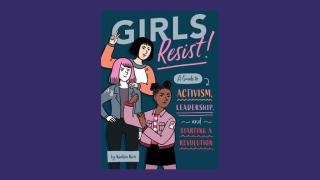
Girls Resist!
KaeLyn Rich
KaeLyn Rich is a writer and activist who works to promote social justice, particularly for youth and women.
Why read it? For young girls looking to make a difference, this book offers a step-by-step guide to activism, making it the perfect handbook for budding change-makers. Rich’s focus on activism mirrors our efforts to equip adolescent girls with leadership skills and the courage to advocate for their rights. This book is a powerful tool for those looking to effect change in their communities.
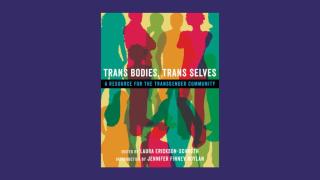
Trans Bodies, Trans Selves
Laura Erickson-Schroth
Laura Erickson-Schroth is a psychiatrist and transgender health advocate who focuses on promoting the well-being of transgender individuals.
Why read it? This invaluable resource tackles critical issues for the transgender community, providing education and support for individuals and allies alike. It aligns with our mission of creating safe spaces for all girls, regardless of gender identity.

The Girl Who Smiled Beads
Clemantine Wamariya
Clemantine Wamariya is a survivor of the 1994 Genocide Against the Tutsi in Rwanda and an advocate for displaced persons and refugees. Her memoir shares the story of her incredible personal journey.
Why read it? Clemantine’s story mirrors the experiences of many adolescent girls in our programme, who are often displaced by conflict and violence. Her story is a powerful testament to the strength it takes to overcome trauma and reclaim one’s future.
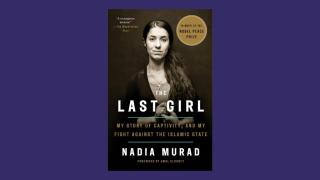
The Last Girl
Nadia Murad
Nadia Murad is a Yazidi human rights activist and Nobel Peace Prize laureate. She advocates for survivors of sexual violence and is a voice for the Yazidi community.
Why read it? Nadia’s story resonates deeply with the girls in our programme, many of whom are survivors of gender-based violence. Her activism and courage inspire young women to speak out and seek justice.
Read more
To mark International Day for the Elimination of Sexual Violence in Conflict, we are amplifying the voices of women who are not just enduring the harsh realities of war and displacement - but who are also working every day to protect, support and empower others. Hear from two women in Palestine.
At Women for Women International, we count a number of dedicated and compassionate male staff among our global community working towards a more equitable future. I spoke to several of our male colleagues – from Iraq and South Sudan, to DRC and the UK. I asked what allyship means to them, how their work has shaped their understanding of gender justice, and what they’ve learned from the women in their lives. What emerged was not just a collection of stories, but a testament to the quiet, determined work of transformation – both personal and societal.
Florence Dumba is a social empowerment trainer at Women for Women International in South Sudan. Her work, working with survivors and creating safe spaces for women to heal from their trauma, is grounded in her own experience of being abducted twice.
In honour of the International Day for the Elimination of Sexual Violence in Conflict, we spotlight five extraordinary women leading the fight against this devastating form of violence. From Nobel laureates to grassroots activists, these changemakers are demanding justice, breaking silence and creating hope for survivors around the world.
On March 28, 2025, a powerful 7.7-magnitude earthquake struck Myanmar, intensifying a crisis already marked by armed conflict, political instability, and widespread displacement. What was once a complex humanitarian emergency has now deepened into a compounded catastrophe - one that disproportionately affects women and girls. As infrastructure collapses and humanitarian access becomes even more restricted, the disaster has laid bare the urgent need for gender-sensitive responses in conflict-affected settings.
CSW 69: One Month Later
subtitle:
Read our reflection blog on CSW 69 - coming 30 years after the landmark Beijing Platform for Action, it felt like a once-in-a-generation opportunity - an invitation for bold thinking, for reshaping decision-making spaces, and for shifting the dial on whose expertise is recognised and integrated into peacebuilding and the broader Women, Peace and Security (WPS) agenda.
Read about how Dr. Asma Elnaeem and Dr. Hiba Ahmed are providing vital healthcare and support to women in Sudan amidst the ongoing conflict, showing incredible resilience despite immense challenges.
The new Netflix show Adolescence has captivated audiences across the UK, tackling the pressing issue of boys and young men being radicalised through online communities that promote harmful and extreme ideas about masculinity. But what does the show have to do with our work in conflict-affected countries, where life on the ground looks very different?
Reparations and the WPS Agenda
subtitle:
Read about Global Policy and Advocacy Manager, Maryline Njoroge's reflections on presenting at a panel at the GIMAC conference: “Peace, Security, and Reparative Justice: Addressing the colonial legacy and its gendered impact”.
Our partnership with Monica Vinader is so much more than a financial commitment. It sends a powerful message to women survivors of war that says: I stand with you, you are not alone. Since 2015, our partnership with Monica Vinader has helped over 420 women (and counting!) reach their full potential through our Stronger Women, Stronger Nations programme across the countries we work in.
Women's History Month Film List
subtitle:
Explore powerful films that tell vital stories of women survivors of war - narratives of survival, resistance, and the unwavering spirit of women who continue to rebuild, dream and inspire, even in the darkest of times.
Bukola Onyishi, our Country Director in Nigeria, shares how gratuates of our year-long programme have taken the initiative to pass along their learnings to 475 women from diverse religious and ethnic backgrounds. Bukola says "Their commitment to sharing knowledge and fostering resilience has been nothing short of inspiring to me."
Each week, these trainers—graduates from our programme—brought the women together to teach them social and economic skills using participant handbooks, ensuring that the lessons they once received from Women for Women International continue to reach more women.

